Growing in mind, body and spirit
From Colombia to Bangladesh, MCC’s education programs are giving students opportunities to learn and develop in new ways.
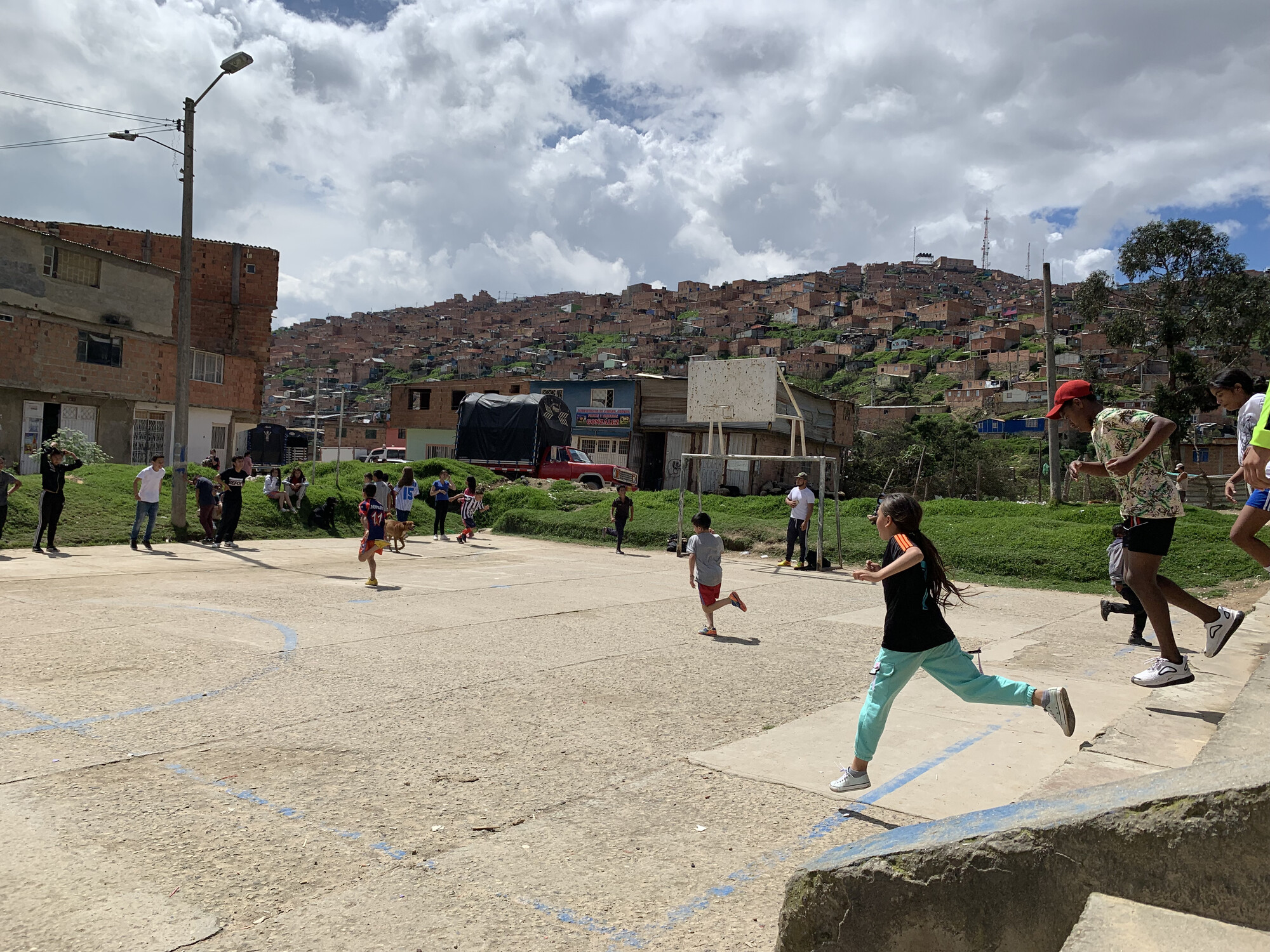
Colombia
In Soacha, Colombia, where many families have experienced conflict, displacement and violence, MCC partner Creciendo Juntos (whose name means Growing Together) offers children and youth after-school activities, tutoring and workshops focused on peace.
One of the most anticipated events of the year is a soccer tournament for peace, which in 2022 drew 80 children ages 6 to 17. For several weeks, participants spend
afternoons honing soccer skills and learning about conflict resolution, teamwork and nonviolent peacemaking—lessons that build students’ coping skills now and help lay a foundation for a more peaceful future.
The tournament begins with an all-day inauguration. Children receive uniforms. Then teams with banners take part in a processional and are formally presented to the community.
Teams play games over the next three weeks until finals are held for each age group. A celebratory lunch marks the finale, plus an invitation to the next event—a peace-focused soccer tournament for parents and adults.
Gaza Strip
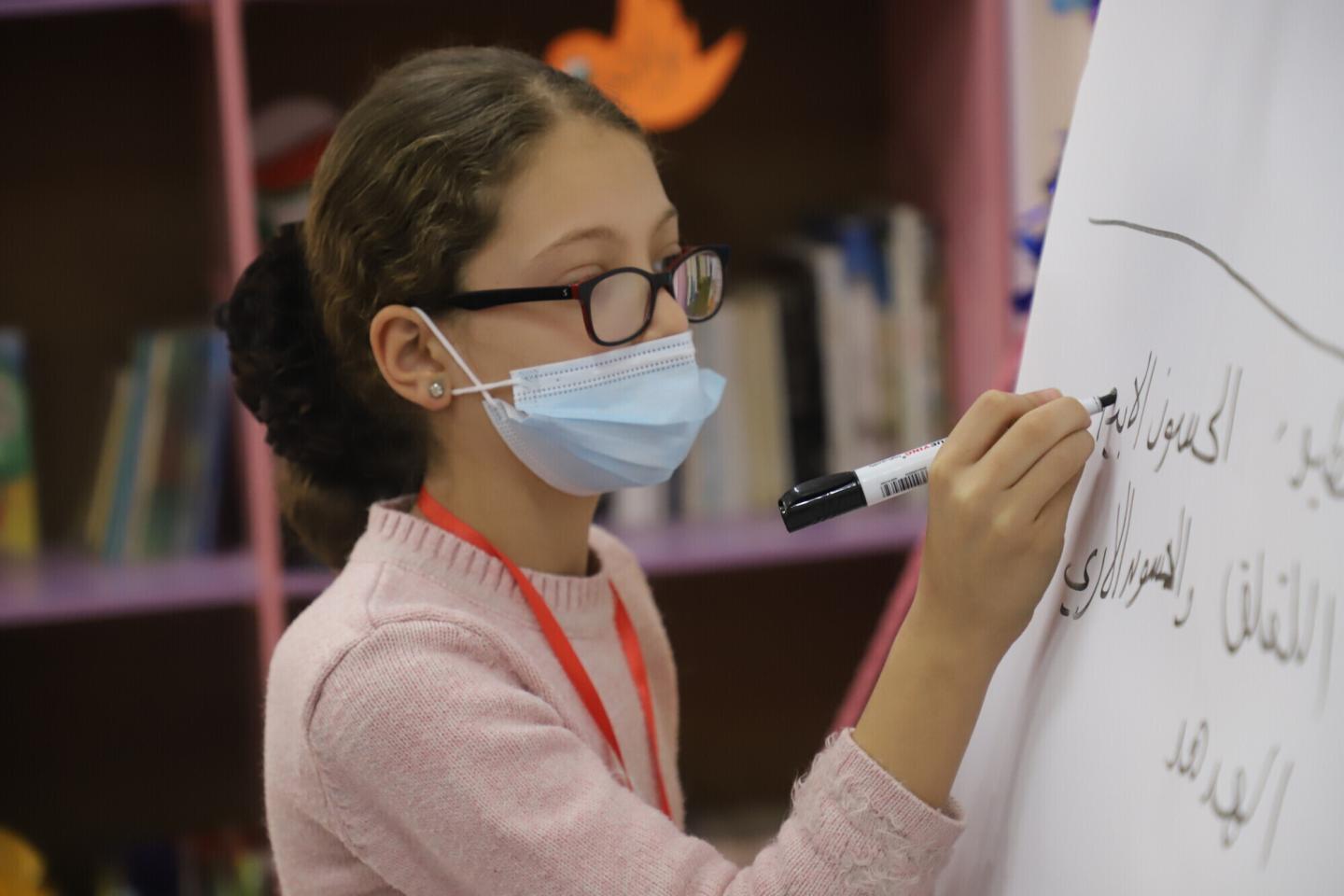
At Shruq Wal Amal, an MCC partner providing after-school activities and summer camps in the Gaza Strip, 11-year-old Talla Maher Abu Zarqa stands in confidence.
It’s a tremendous change from 2019, when Talla—disheartened by her experiences at school—first came to the center. “The mockery of my classmates and their bullying due to the weakness of my eyesight made me hate school, so I was hesitant, afraid, alone and never participated,” she remembers.
But at the center, whose Arabic name means Sunrise and Hope, literary facilitator Wiam Wadi discovered Talla’s love of reading and developed a plan to help grow her writing and her self-confidence.
As her skills and confidence flourished, she was selected to receive more training in writing and managing effective dialogue and discussion sessions.
She began reciting poetry, giving speeches and participating in research sessions. She has participated in story collections published by the center and has been active in advocacy campaigns focusing on children’s rights and anti-bullying within the center.
Syria
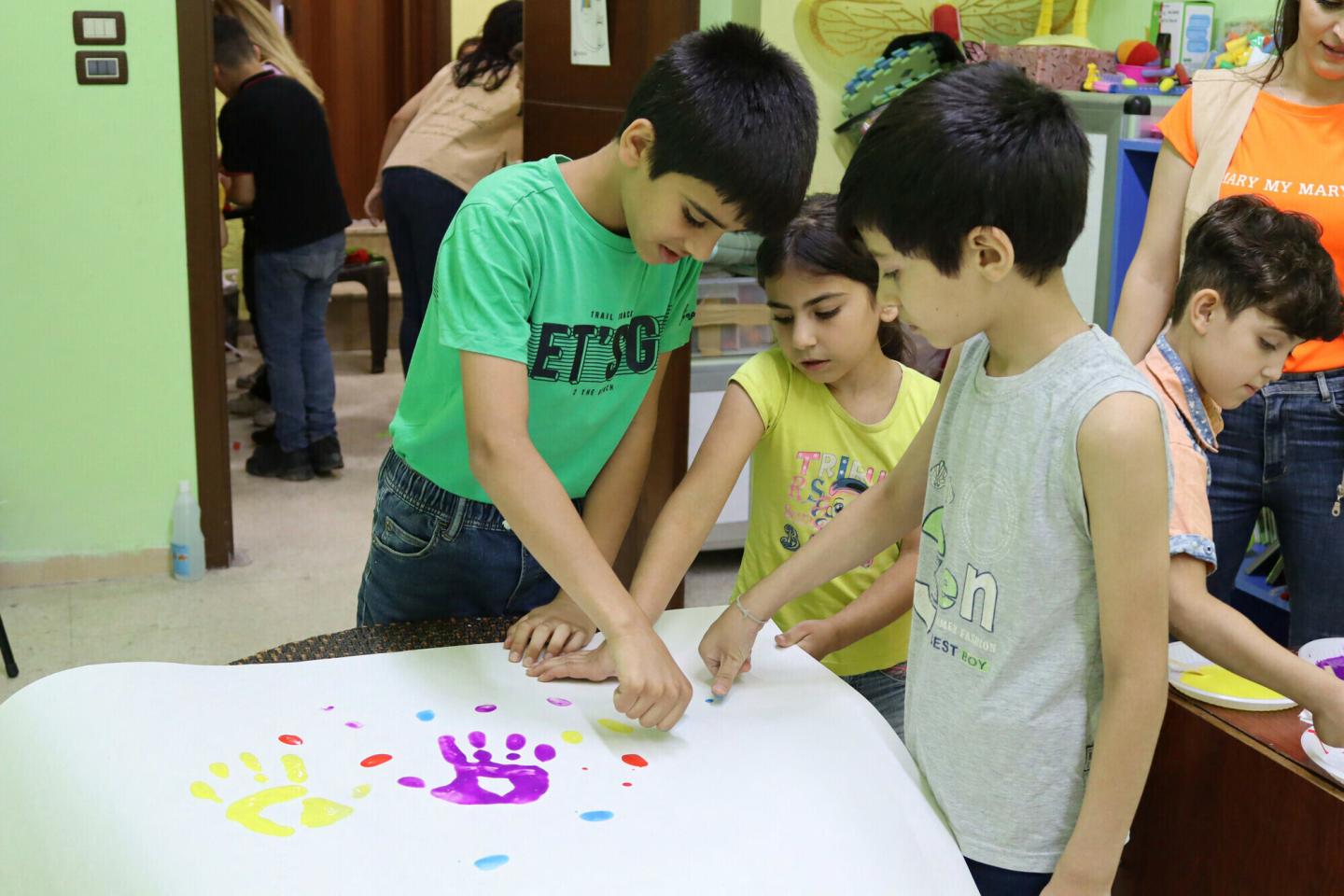
In unstable environments, marked by the tensions of war and displacement, MCC-supported programs provide a respite and safe space for children like these in Syria.
In Damascus, Saddad, Deir Attieh and Humeira, Syria, child-friendly spaces give children (names not used for security reasons) the opportunity to build trust as they play together and participate in classes that encourage them to express their emotions through art, drama and music.
Activities and psychosocial support provide an oasis of normalcy. They help young people who lack the tools to process the trauma and tensions that have become part of life in Syria over more than a decade of war and several years of severe economic downturns.
Zambia
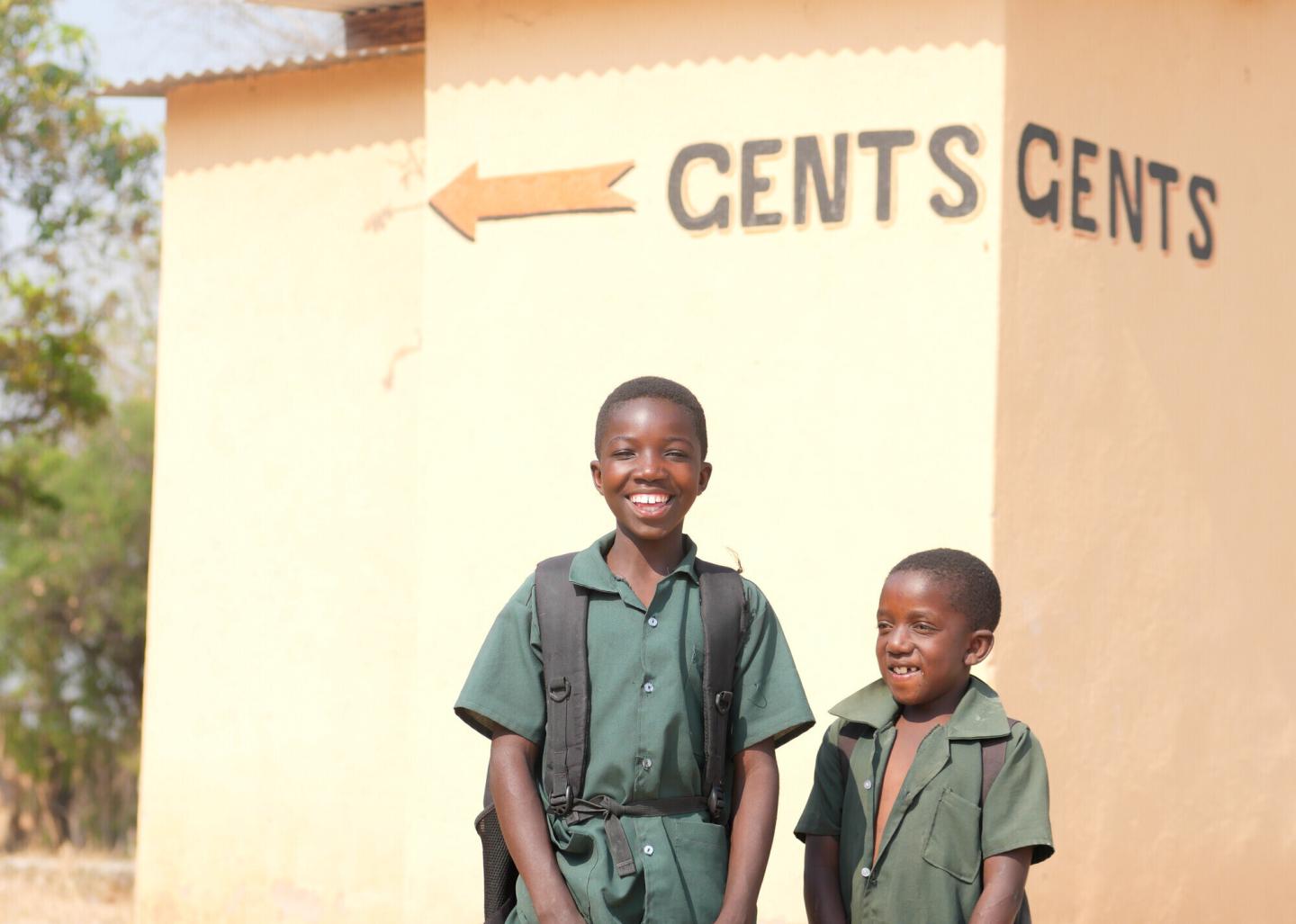
In Zambia’s Southern Province, MCC is helping to improve the learning environments for students like Jasper Munkombwe and Annanias Sialwala, shown standing in front of a new latrine block that MCC funded at Batoka School.
Zambia, like other countries, has made strides toward the Millenium Development Goal of achieving universal primary education, including offering free primary education that sparked a boom in enrollment. But that didn’t translate into more classrooms, desks or other infrastructure for schools often already in need of urgent repairs or upgrades.
In response, MCC is working with six Brethren in Christ schools in rural Zambia to provide such repairs and upgrades to school facilities and items like additional desks, as well as educational resources and mentors for teachers.
South Sudan
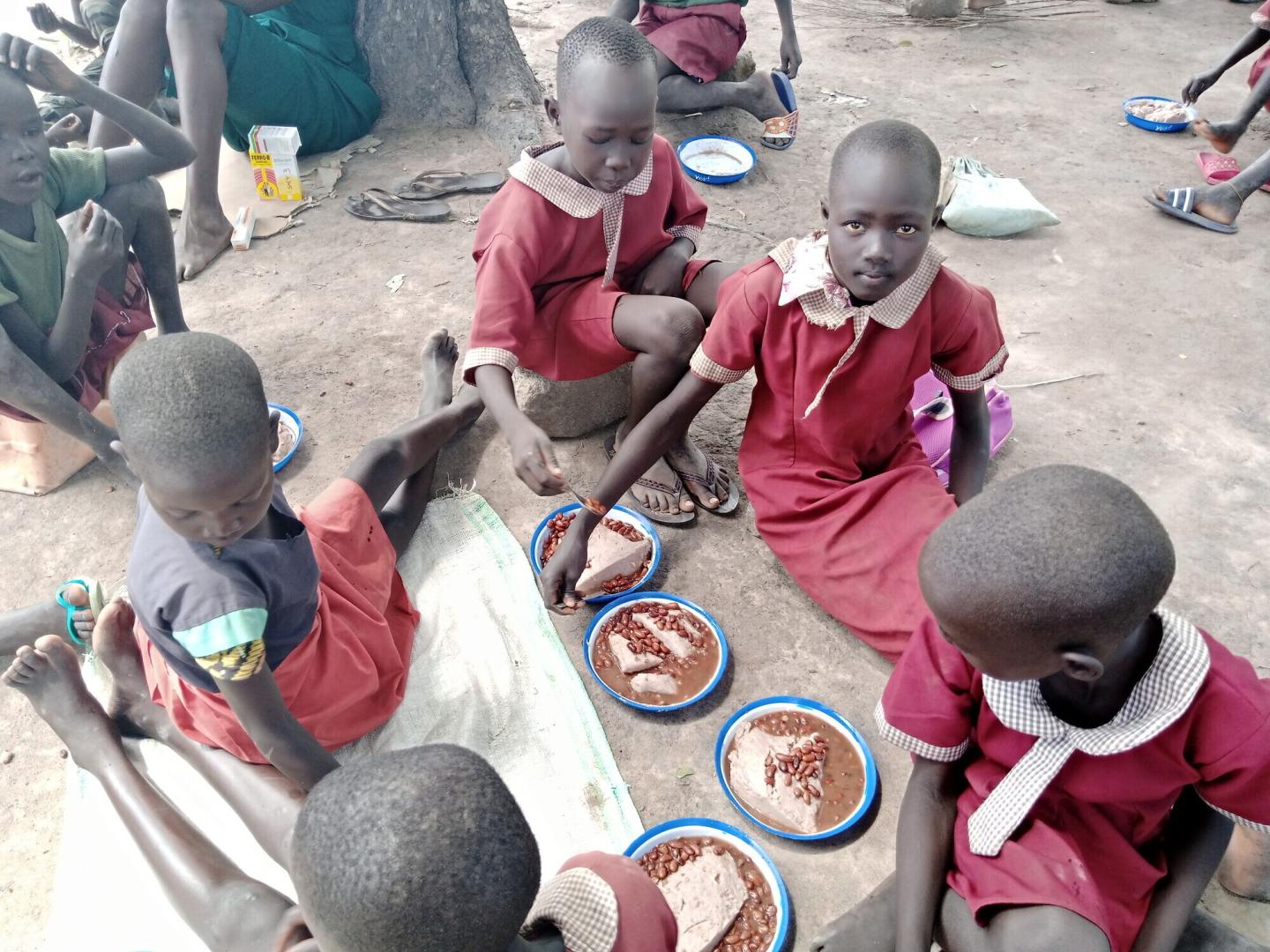
In South Sudan, having meals available at school not only helps students have
more energy to learn. It also boosts attendance.
Here, in Rumbek, MCC funding helps support hot meals for students at Loreto Primary School, improving students’ nutrition and their health. And, assuring daily meals for all students has helped attract more students to Loreto schools, especially at the primary level, and is reducing dropout rates.
Bangladesh
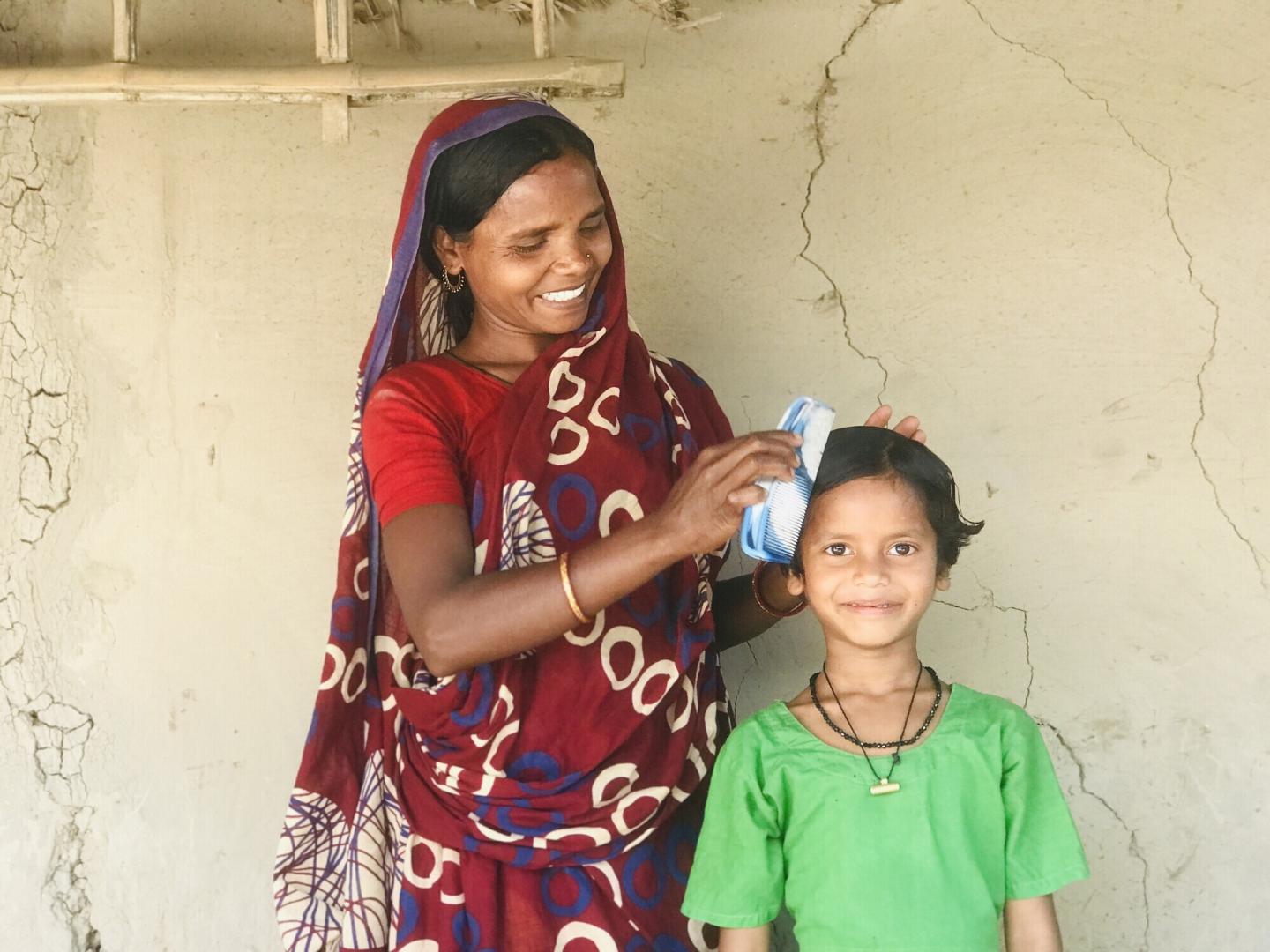
In Tanore, Bangladesh, students like 6-year-old Laboni Tudu often need to know a new language to succeed in school.
Through an MCC-supported multilingual education program, Tudu, who is from the Santali Indigenous community, began her education in her Indigenous first language while learning Bengali, the language used in primary school.
Tudu is excited about her first year of primary school. And her mother, Pormila Mardy, says Tudu is settling into classes more readily than her older son, who did not have an opportunity to be part of the multilingual education program and has struggled in his studies.

